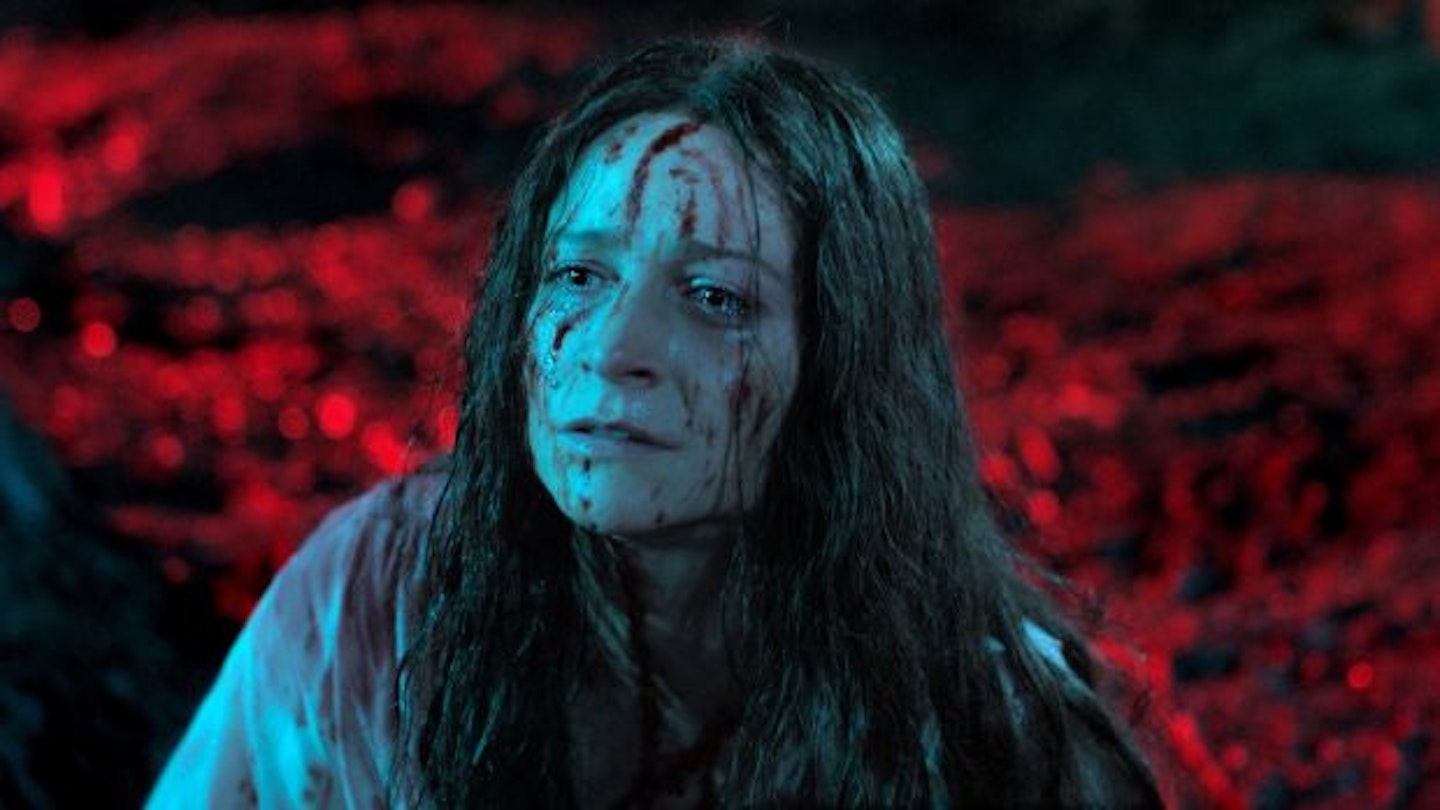In director Prano Bailey-Bond’s film debut, Niamh Algar plays an eighties film censor whose job is to watch brutal horror films all day, everyday, in a dark, basement screening room, trying to establish what level of violence is acceptable, and what needs to be censored out. To get into character, Niamh watched a whole bunch of so-called ‘video nasties’; low budget, ultra violent horror films that created a moral panic under Thatcher’s government.
‘I watched Cannibal Holocaust’ she says, grimacing over Zoom. ‘There's a moment in that film where a turtle is sacrificed, and it’s real; they actually did it. It was so disturbing. It was very interesting to think about a censor and ask, what if watching all of these films did actually have a psychological effect on someone? Or no effect on them? And what does that say about them?’
Horrors have really evolved and developed in the sense of psychological thrillers, it has to get under your skin and leave you really thinking about the narrative
Her character, Enid, falls into the latter camp. Haunted by the disappearance of her younger sister, even the darkest films can’t contend with the grief that she’s already experiencing, but it's these two intersecting horrors - the real and the fictional - that cause Enid to gradually lose her grip on reality, descending into a kind of nightmarish state.
‘Horrors have really evolved and developed in the sense of psychological thrillers, it has to get under your skin and leave you really thinking about the narrative. I could relate to Enid, she really is just a normal girl, but she propelled herself into a very extraordinary situation. I think where I saw that done before recently was with Hereditary; grief is a horror, it's a horrific experience to go through. And so Enid is essentially stuck in that process of grief because she's not allowing herself to process it, to look inside that Pandora’s box.’
Niamh grew up watching scary films at school friends' sleepovers, (‘If it said 18 on the box, you knew it was going to be good’), which was perhaps good preparation for her recent string of roles. She is also on our screens in Channel 4’s Deceit, inspired by a real-life police Honeytrap operation that occurred after the 1992 murder of Rachel Nickell, a young mother brutally attacked in front of her two-year-old son. In a desperate bid to catch the killer, an undercover police officer was essentially used as sexual bait to try and garner a confession from a suspect. It was a completely botched investigation; the suspect was innocent and the real killer wasn’t caught until years later.
While the real undercover office is now under lifelong anonymity, Niamh interviewed several women who have been undercover to try and create her own character, and get a sense of what she might be experiencing. In an interview, a former officer told her about a time her cover was almost blown, the story ended up making it into one of the first scenes in Deceit. ‘She told me about an operation where she was meeting with someone who was trying to sell her drugs. You'd have to get everything right, so she would put clothes into a bag and fill it with musky water and hang it in her garage so they would smell. She’d done all this preparation and she'd gone into this crack den and was pretending to be someone who was addicted to heroin. Then the guy leaned in and said, “nice teeth''. She knew then and there that she'd been had, that she had to get out of there or she would have been in serious harm. After that, she started putting boot polish in her teeth.’
‘Another woman described it as, you’re building a legend’ explains Niamh, ‘It’s like how I would build a character as an actor, apart from the difference between if I get it wrong, and if she gets it wrong, is that I could always do another take... she could end up dead. It was intense. I was just fascinated. I really admired how brave these women were to go into situations essentially unarmed. How brave of a person you would have to be in order to carry that off?’
Jumping from one intense role to the next, during a year of intermittent lockdowns and enforced quarantine took its toll on Niamh. ‘In the evenings [I was] emotionally and physically exhausted. Even though you know as a person, you're not actually going through those situations, your body still thinks that it has in some way. You hold tension in different parts of your body and so I feel like in playing a character you have almost a residual trauma that you have to acknowledge.’
She says discovering meditation was key. ‘ learned about meditation in quarantine and it's the thing that got me through it. I never really had time for meditation. But now I've realised it's equally as important as having a healthy diet, and I’ve learned how to do it in a way where I'm not just falling asleep.Taking a minute is so important. Sleep is so important - that's where you solve so many of your problems.’
‘I care a great deal about my career and about the roles I play’ she continues, ‘but I also am smart enough to realize that it's not sustainable to put yourself through those situations and not take time at the end to make sure that you look after yourself and get yourself back to your normal baseline. I’ve found meditation helps, spending time with friends and family, but also doing the things that make you feel like you, it’s such an important thing.’
Censor is in cinemas now
Deceit is available on Channel 4
